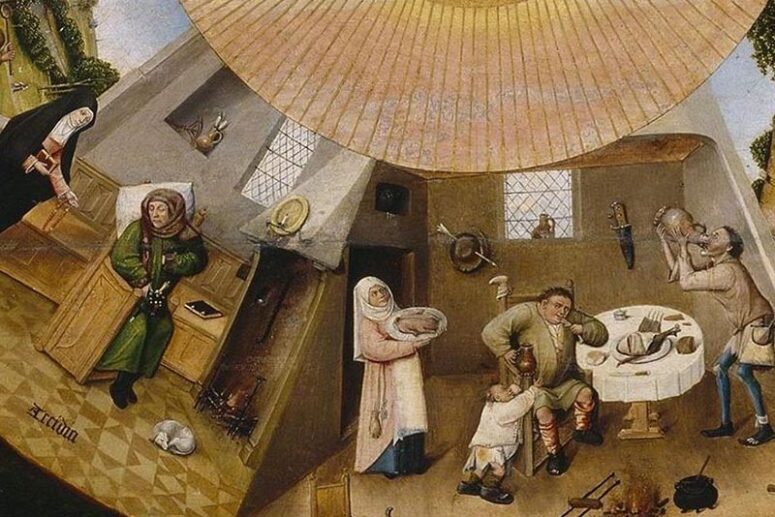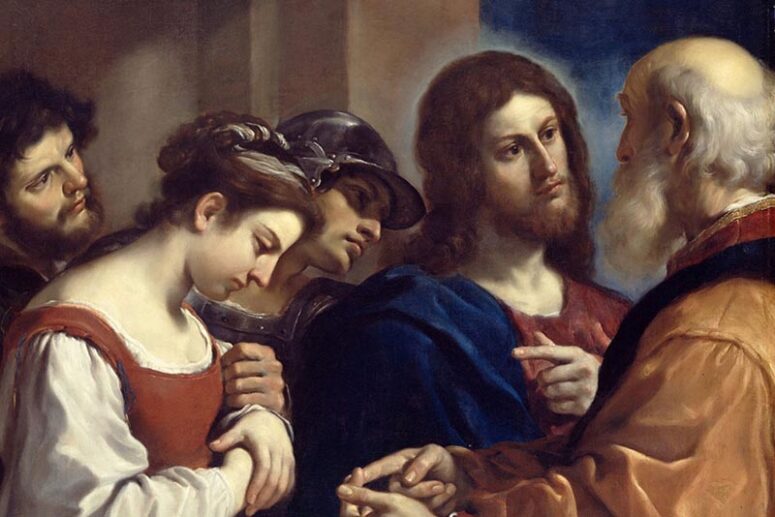
Why are mortal sins so named? Do they bring a person closer to death? What if a person cannot get rid of such sins?
Do Not Be Displeased Like Jonah
In the book of Jonah, one can read about God commanding the prophet to tell the people of Nineveh that in forty days their city would be destroyed [for their sins]. However, the citizens repented, and “when God saw what they did, how they turned from their evil way, God repented of the evil which he had said he would do to them; and he did not do it” (Jon. 3:10). Jonah was displeased that the sinners were not punished, but God enlightened him. I was reminded of this Old Testament episode because many of us sometimes resemble Jonah, caring for the sins of others and wishing for just punishment for sinners. However, other people’s sins should hardly concern us.
Instead of wondering why people committing deadly sins are still alive we should remember that we are responsible and accountable for our own sins. It is not our task to correct others; instead we are called to correct ourselves. This is the most important and the most difficult part, because in the struggle with ourselves, the forces are always equal with the adversary.
Why is this fight always difficult? Because it involves constant analysis and correction of one’s life, of one’s sinful skills and habits. All of this is a serious, extensive work, and a lifelong endeavour.
The Old Testament
The concept of mortal sins comes from the Old Testament, as discussed in Exodus and Leviticus. At that time it had a very specific meaning: mortal sins were those punishable by death. There were four of them: blasphemy against God, murder, debauchery, and disrespect for parents. The people who sinned against these commandments, as well as the witnesses to the sin committed, were stoned. This execution served as a kind of “disinfection” of Old Testament society from a spiritual contagion capable of corrupting and destroying the chosen people of God. The Israelites, surrounded by predominantly pagan nations with their cults, strange customs, and religious traditions, needed to maintain moral purity, steadfastness, and faith in the One True God.
What Has Changed Since the Coming of Christ?
In the New Testament, the Lord tells us: “Think not that I have come to abolish the law and the prophets; I have come not to abolish them but to fulfil them” (Matthew 5:17). According to the interpreters of the Bible, Christ speaks of bringing the Old Testament law to natural fulfilment, giving it a new meaning, while discarding what had become obsolete. Thus, the Old Testament is revealed in the New Testament, which offers a more sophisticated view of the spiritual life. We are no longer told “Thou shalt not kill”, but “every one who is angry with his brother shall be liable to judgement; whoever insults his brother shall be liable to the council, and whoever says, ‘You fool!’ shall be liable to the hell” (Matt. 5:22); not “Thou shalt not commit adultery”, but “every one who looks at a woman lustfully has already committed adultery with her in his heart” (Matt. 5:28).
There is a remarkable example when a harlot was brought to Christ who was to be stoned for her sins according to the law. The Pharisees were watching for His reaction, wanting to tempt Him and “test” His faithfulness to the law. The Saviour was drawing something on the sand, “and when they continued to ask Him, He stood up and said to them, ‘Let him who is without sin among you be the first to throw a stone at her.’” (John 8:7). After the prosecutors had dispersed, Christ released the woman, telling her to “go and sin no more” (John 8:11).

There is only one sin that the New Testament speaks of as terrible and unforgivable: blasphemy against the Holy Spirit: “Therefore I tell you, every sin and blasphemy will be forgiven men, but the blasphemy against the Spirit will not be forgiven. And whoever says a word against the Son of man will be forgiven; but whoever speaks against the Holy Spirit will not be forgiven, either in this age or in the age to come” (Matt. 12:31-32). This refers to absolute faithlessness, deliberate blasphemy, stubborn opposition to God, Satanism, and inability to repent. In such a state, a person’s nature changes, making him a demon in the flesh. This commandment exists not because God is too strict, but simply because a person’s repentance in this altered state is impossible.
Do Not Succumb to Despondency
St. Paul writes, “For the wages of sin is death, but the free gift of God is eternal life in Christ Jesus our Lord” (Rom. 6:23). It makes no difference whether a stone or a sandbag is hung around your neck – both will drag you to the bottom. In other words, accumulated and neglected minor sins and major grave sins, of which a person has not repented, are equally dangerous for him. The conclusion is simple: with Christ there is life, while without Him there is death, and there is no other option. Our task is to be with our Savior, and if that is what we want, we will strive to get rid of our sins.
It is impossible for a person to be completely free from his sins, but we need to have the desire to overcome them. On this path, it is important not to fall into despondency. The Holy Fathers write about states of stony insensibility and carnal sophistication, which must be avoided by all means. In these states, a person gives up, stops struggling and loses the desire to overcome himself and change something. There is a well-known story in the Paterikon where a young man came to an elder and said, “I have sinned, I have repented, and then I have sinned again and repented once more. How long will this continue, Father?” “Until death, my child!” the elder answered. This is the way of a Christian: you fall down, and then you get up, and move on. If you fall down again, you need to get up again. Unfortunately, there is no other way. It is very important to keep getting up and continue walking to God. As St. Seraphim of Sarov taught, on this path one must be especially apprehensive of the spirit of despondency and despair, because it makes a person completely paralyzed and capable of neither repentance nor self-improvement.
Translated by The Catalogue of Good Deeds
Source: https://gorlovka-eparhia.com.ua/pochemu-ot-smertnyh-grehov-ne-umirayut/




